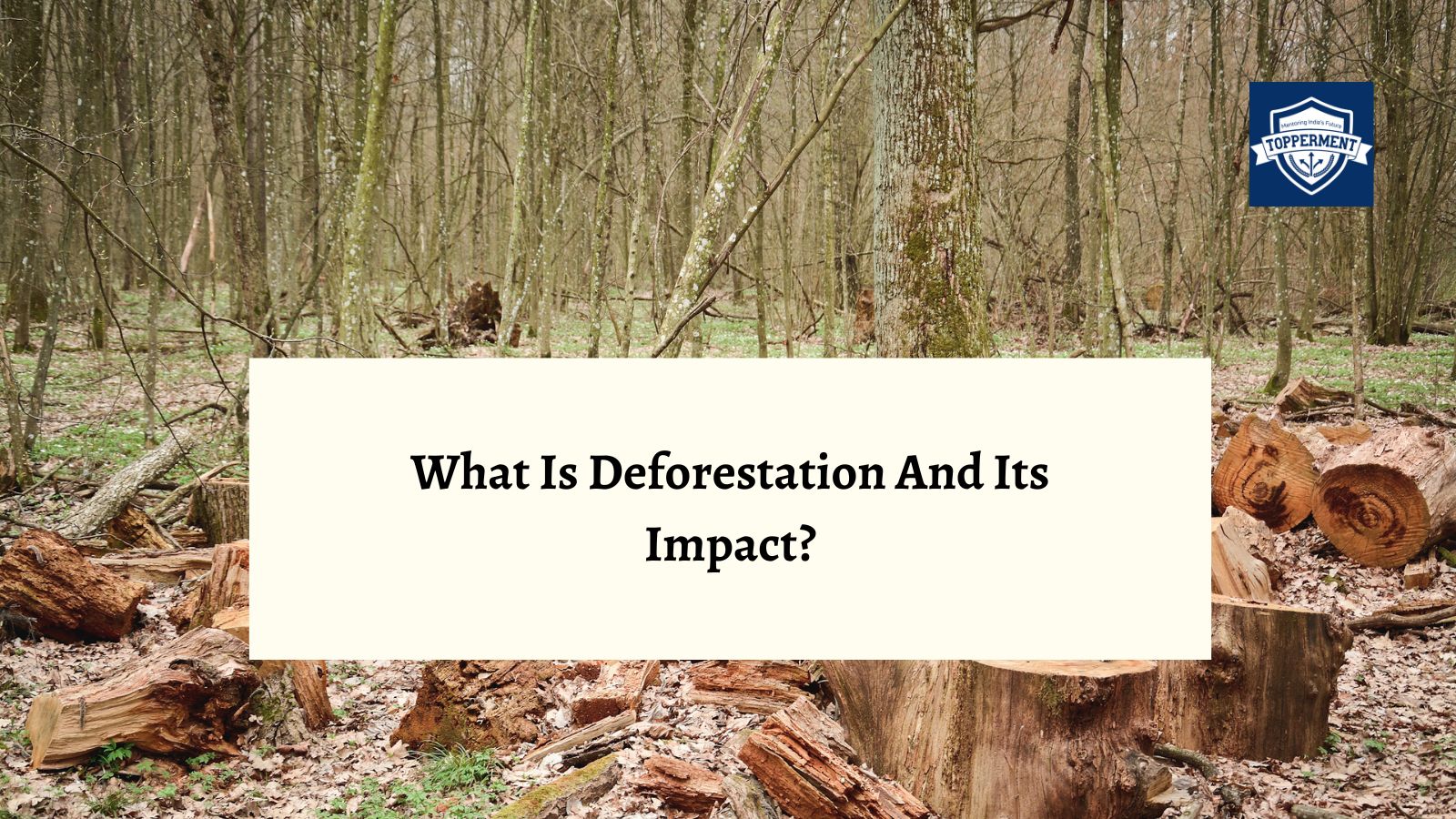
The Devastating Impact of Deforestation: What You Need to Know| UPSC Environment
Deforestation refers to the deliberate removal of trees from forests or other wooded areas, leading to a significant reduction in forest cover. Deforestation has become a significant environmental issue due to its impact on climate change, loss of biodiversity, and other negative consequences.
Causes of Deforestation:
Several factors contribute to deforestation, including:
- Expansion of agricultural land: As the population grows, there is an increasing demand for food, leading to the conversion of forests into farmland.
- Logging: Logging for timber, paper, and other products is a major cause of deforestation.
- Infrastructure development: Roads, dams, and other infrastructure projects often require the clearing of large areas of forest.
- Mining: Mining activities can cause significant damage to forests, leading to deforestation.
Impact of Deforestation:
Deforestation has several negative impacts on the environment and human society, some of which include:
- Climate change: Trees absorb carbon dioxide from the atmosphere, and deforestation releases this carbon back into the atmosphere, contributing to climate change.
- Loss of biodiversity: Deforestation destroys habitats, leading to the loss of plant and animal species.
- Soil erosion: Trees help to anchor the soil and prevent erosion, and deforestation can lead to soil degradation and reduced agricultural productivity.
- Water cycle disruption: Trees play an important role in the water cycle by absorbing and releasing water, and deforestation can disrupt this cycle, leading to reduced water availability.
Solutions to Deforestation:
Several solutions can be implemented to reduce deforestation, including:
- Forest conservation: Protected areas and national parks can help to preserve forests and their biodiversity.
- Sustainable agriculture: Agricultural practices that conserve soil and water can reduce the need for deforestation.
- Sustainable logging: Practices such as selective logging and reforestation can help to reduce the impact of logging on forests.
- Alternative livelihoods: Providing alternative livelihoods such as eco-tourism and agro forestry can reduce the need for deforestation.
Deforestation is a significant environmental issue that has wide-ranging impacts on the environment and human society. Solutions such as forest conservation, sustainable agriculture, and alternative livelihoods can help to reduce deforestation and its negative consequences.
Also Read
Tag:Climate Change, Deforestation, Environment, Forests, IAS, IFS, Impact, India, IPS, IRS, Soil Erosion, Sustainable Agriculture, UPSC, Water Cycle



